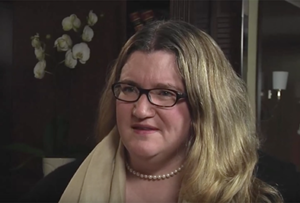This episode features grantee D’Maris Coffman of the Centre for Financial History talking about her organization’s commitment to a New Financial History and what the fruits of their approach can tell us about modern debt crises and sustainable debt levels. She also discusses her research, funded by the Institute for New Economic Thinking, which explores fundamental questions about how Britain averted a Malthusian trap in the early nineteenth century and why the answers matter for global food security today.Historians can contribute to economic thinking in three ways. First, much of development studies depend on historical parallels, especially to eighteenth- and early nineteenth-century Britain, which is taken as the cardinal case for industrialization. Through these parallels, historians can refine, modify, and even discover fallacies that have become dangerously entrenched in some development economics. Second, historians can offer histories of economic thinking, including histories of economic analysis, which explore the internal intellectual trajectories of economic ideas, and histories of economic thought, which put these ideas in context. Both of these fields of study disrupt economics’ path of dependence on certain ideologies And third, economists principally deal in “explanation,” especially in the econometric sense of establishing causation.
Yet “narrative causation,” what historians call interpretation, can be even more powerful, as the psychoanalyst and Institute grantee David Tuckett and others have shown. These “interpretations,” or “stories” that people tell themselves about phenomena, often influence behavior much more readily than the models would predict.To understand the first point, consider the exchange between Adair Lord Turner and Professor Niall Ferguson after the latter’s plenary lecture. Ferguson follows North and Weingast (1989) in seeing in the Glorious Revolution a triumph of “good institutions” over bad ones, and especially follows them in identifying parliamentary supremacy as responsible for securing property rights. This has caused him to espouse a particular version of the Washington Consensus. Yet Turner and Bill Janeway both argued that eighteenth-century institutions were often very poor indeed. To this end, our research into the “Credible Commitment” thesis has yielded three key findings. One that political risk is the most important single determinate of sovereign risk. Two, that the willingness of one party to honor the other party’s commitments is essential, and thus 1710 (when the Tories honored Whig commitments) was more of a turning-point than 1688-89. And three, that rather than crowding out the private sector, public sector spending and a coercive and authoritarian fiscal system paid for public borrowing during the Napoleonic wars.These findings show that that gridlock in Washington is the “worst sort of politics possible.”
Indeed, it is my firmly held belief that our research will overturn the relatively glib heuristics proposed by Carmen Reinert and Kenneth Rogoff.The key thing to remember is that it’s not necessarily about “better institutions.” Yes, institutions matter at some levels of development, particularly poor institutions that can retard growth. But we need to develop a concept of “good-enough institutions.” At some point, institutional quality probably is deadweight: the direction of causality changes. Successful economies and societies are not successful because they have superb institutions, but rather they have superb institutions because they can afford them. The trick is to find that sweet spot.
D’Maris Coffman is a Leverhulme/Newton Trust Early Career Fellow in the history faculty and an affiliated lecturer at the University of Cambridge. She also is a grantee of the Institute for New Economic Thinking for her work on the history of U.K. agriculture markets. Her book Questioning Credible Commitment: Perspectives on the Rise of Financial Capitalism, co-authored with Adrian Leonard and Larry Neal, was published in September 2013 by Cambridge University Press.

